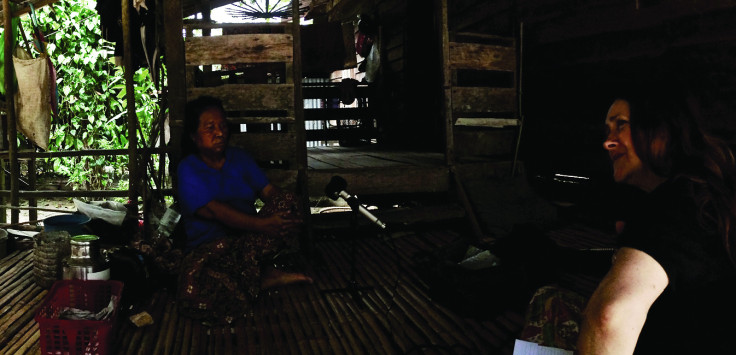These hunter-gatherers in the Malay Peninsula have a 'special' sense of smell
The Jahai appear to have an unusually keen ability for describing odours.

It is commonly held view among scientists that most people can easily name and describe colours, but when it comes to odours, the task becomes significantly more difficult.
However, a hunter-gatherer group native to the Malay Peninsula – known as the Jahai – appear to be an exception. According to research, they have an unusually keen ability with smells, a sense researchers think is tied to their traditional lifestyles.
"There has been a long-standing consensus that 'smell is the mute sense, the one without words', and decades of research with English-speaking participants seemed to confirm this," said Asifa Majid from Radboud University in the Netherlands. "But, the Jahai of the Malay Peninsula are much better at naming odours than their English-speaking peers. This, of course, raises the question of where this difference originates."
For a new study, published in the journal Current Biology, Majid and his colleague Nicole Kruspe, from Lund University, wanted to investigate whether the Jahai did indeed have an unusually keen olfactory sense, or whether English speakers were simply lacking.
To do this, the researchers examined two related groups of people in the Malay Peninsula who speak the same language and live in similar environment – the Semaq Beri, who are hunter-gatherers, and the Semelai, who are traditional farmers.
The researchers compared the odour and colour-naming abilities of the hunter-gatherer and non-hunter-gatherer groups. For the smell test, sixteen odours were used: orange, leather, cinnamon, peppermint, banana, lemon, licorice, turpentine, garlic, coffee, apple, clove, pineapple, rose, anise, and fish.
"If ease of olfactory naming is related to cultural practices, then we would expect the Semaq Beri to behave like the Jahai and name odours as easily as they do colours, whereas the Semelai should pattern differently," the researchers write in the study.
The results showed that the hunter-gatherer Semaq Beri named both odours and colours with ease, just like the Jahai had performed in previous tests. The non-hunter-gatherer Semelai, however, performed just like English speakers – odours were difficult to name.
These findings suggest that the processing of smells by hunter-gatherers is superior to non-hunter-gatherers, a recent consequence of cultural adaptation.





















